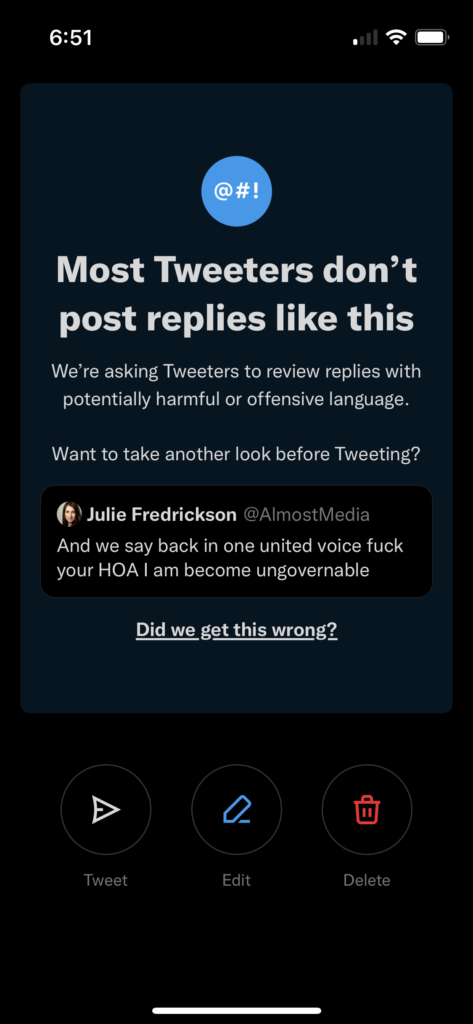Some neu-feminine viral thread arguing women are not meant to work structured 9-5 jobs because of our reproductive cycle hit my Twitter feed today. The author argued menstrual hormonal cycles represents an innate biological need for longer creative and restorative cycles in women. Or something. I am not here to argue biological essentialism.
The thread itself wasn’t all that weird just a bit of a throwback. I am all about working with your normal cycles and not against them but I just can’t get to “this is why raising children and the home is our natural environment.” Normally I’d view this sort of thread as standard natalist “be proud of being a woman” stuff and move on. I even kind of agree that we have ignored women’s hormones to our detriment.
But the way it came into my feed was a bit wilder than your usual retvrn dork. A Christian Nationalist personality that I keep tabs on had retweeted a Nazi larper (no really his avatar is the Gigachad with a Swastika chest tattoo) who had commentary about the biological inferiority of women based on this thread. He made some lewd jokes about how any attempt to live beyond the home and our children was clearly a lie.
This whole mess of muddled ideologies hit my feed just as I was enjoying a bout of PMS anger and I strongly debated responding with a well actually “we also hot chip and twerk” but I wasn’t entirely sure I needed to give them the attention of an outdated meme format. Which is also why I’m not linking to any of it. Sorry you have to take my word for it but you can probably search for it with these details.
The constant thrum of reactionary throwback accounts is pretty typical on Twitter. The casual disdain for anyone outside of your immediate in-group (which in this case was so small it literally excluded all women) has become so normalized it’s honestly not a shocker I’m seeing natalists, dominionists and Gigachad Nazis on my Twitter feed advocating for increasingly wild viewpoints.
Muddled hate is part of the appeal of the internet. But also damn if it’s not also the worst part. But if you ignore and block all of the worst bits you might be surprised to discover that actually people still believe all kinds of wildly hateful shit. And I’d rather know so I can stay ahead of any pogroms. But that’s just me. Don’t forget to vote in the mid -terms!



